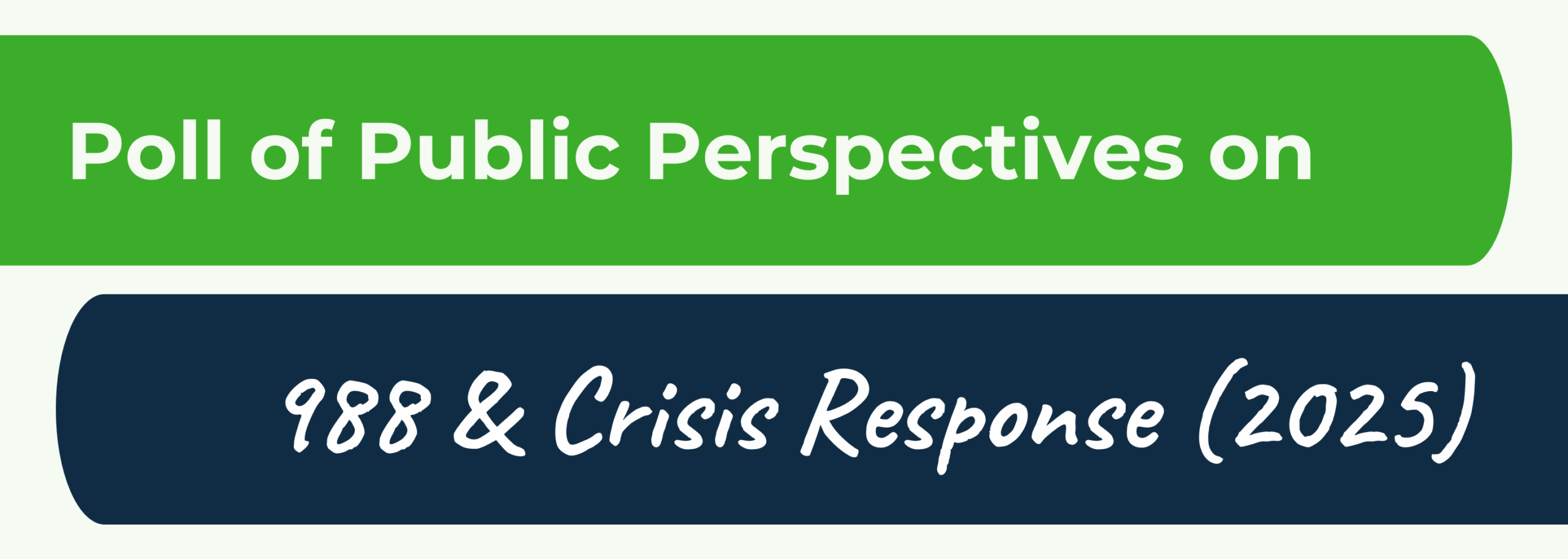
A NAMI-Ipsos poll conducted in Summer 2025 found that awareness of 988 is at an all-time high, with roughly three-quarters of Americans having at least heard of 988. However, people remain dissatisfied with the state of mental health care in the U.S. Additionally, the poll found consistently strong support for policies and funding to strengthen 988 call centers and related crisis services. Dig into the results further with this slide deck.
Jump to Key Findings:
- Key Findings on 988
- Key Findings on Funding 988 and Crisis Services
- Key Findings on Crisis Response
- Other Key Findings
- Resources
Key Findings on 988:
- Nearly three-quarters (74%) of Americans have at least heard of 988, up thirty percentage points from the September after the number went live in 2022 (44%)
- 988 awareness is highest among Americans aged 18-29 (82%), up five percentage points since Summer 2024
- The largest growth in awareness over that time was among Americans aged 30-49, increasing eight percentage points from 68% in 2024 to 76% in 2025
- 28% of people are familiar with 988, double the familiarity from September 2022 (14%)
- Only a third (30%) of Americans have never heard of 988.
- Among this group, fewer than half correctly knew details about how often someone gets sent to a hospital in a crisis (36% correct), its nationwide availability (27%) or that the federal government still funds 988 (9%)
- If someone needed to contact 988, being able to speak with a crisis counselor immediately (54%) and not receiving a bill for contacting 988 (25%) were the most important considerations
- 6% of respondents had contacted 988 for themselves, while 5% contacted for someone else in a crisis
- 71% had said they received at least some of the help they needed
Key Findings on Funding 988 and Crisis Services:
- 86% of U.S. adults believe that the 988 Suicide & Crisis Lifeline should be a priority of Congress’ for federal funding — with over half (53%) of saying it should be a high priority and 1 in 6 (18%) saying it should be the highest priority
- Support for funding 988 Suicide & Crisis Lifeline call center operations and crisis response services remains high, at 80% support for federal funding and 82% for state funding
- Three-quarters of people would be willing to pay at least something on their monthly cell phone bills to fund 988 when they learn that is similar to how they already contribute to funding 911 services
- In states where people already pay small 988 monthly fees, 2 in 5 would be willing to pay $0.60 or more each month in support of these crisis response services
- In fact, only 9% of people in these states even knew they were paying a 988 fee on their monthly phone bill
Key Findings on Crisis Response:
- 38% of people would not feel safe calling 911 for help if their loved one was having a mental health crisis
- 83% of people support policies that require all health insurers to cover mental health crisis services
Other Key Findings:
- Only 2 in 5 Americans (44%) have a favorable few of the mental health care system in the U.S.
- People believe their elected officials have done too little to address the state of mental health care in the U.S.
- 59% say Congress has done too little
- 58% say the President has done too little
- 50% say their state’s legislature has done too little
- 47% say their state’s governor has done too little
- More than 4 in 5 adults (83%) say health insurance should be required to cover mental health care and substance use disorder treatment, just like they would cover physical health care
- 79% say that young people need more mental health resources dedicated to them and their unique needs
Resources:
- Press Release: Celebrating Three Years of the 988 Crisis Line: Awareness Grows but Americans Want Improvements to Mental Health Care, New NAMI Poll Shows
- Poll Topline Results & Methodology
- Poll Research Slide Deck
- 988: Reimagining Crisis Response
- #ReimagineCrisis Campaign
- NAMI’s 988 Crisis Response State Legislation Map
- 2024 NAMI Legislation Report Issue Brief: Trends in State Policy: 988 and Crisis Care

